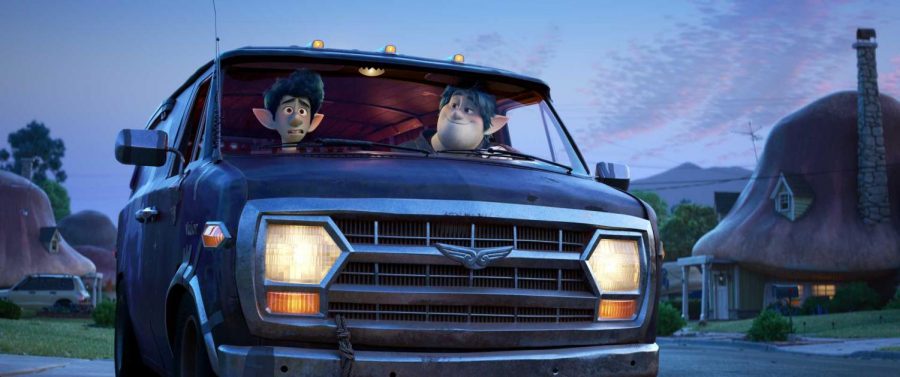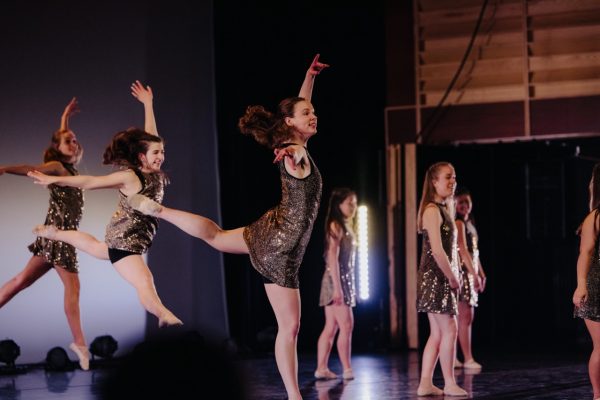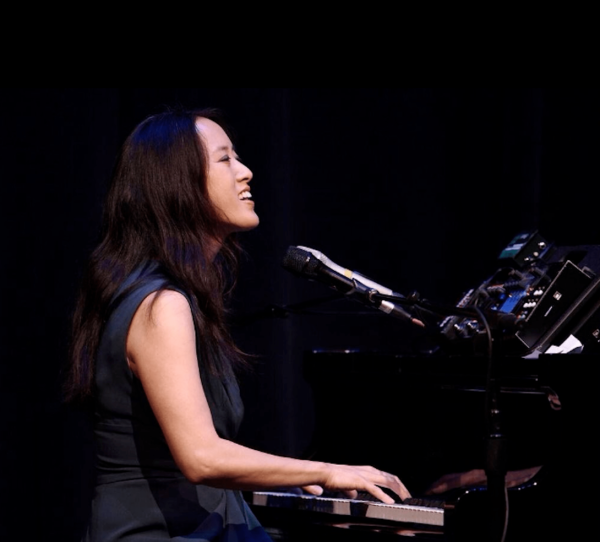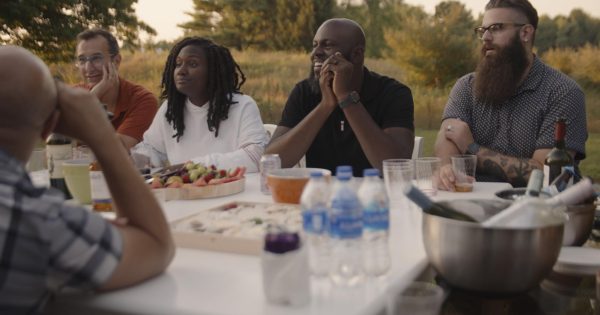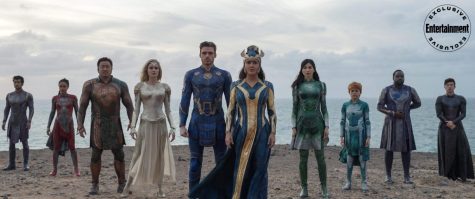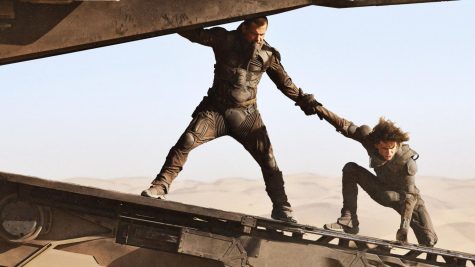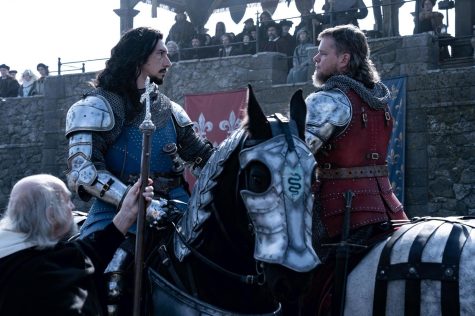Pixar maintains reputation of quality with “Onward”
Photo from Disney/Pixar. Fair Use.
The magic of “Onward” comes from the unique portrayal of the two brothers at the story’s center.
Going into a Pixar film, the general assumption is that you will be satisfied. Aside from a few missteps like “Cars 2,” Pixar has a solid, if not inoffensive, track record. Still, while Pixar rarely disappoints, at times their films hold an air of complacency. Their newest film, “Onward,” transcends its obligatory role as a kid’s movie and provides the viewer with an experience that tugs at your heart strings and creatively explores the question of what it takes to be a father.
In a fantasy world overtaken by technology, magic has become obsolete, and awkward teenager Ian Lightfoot (Tom Holland) must go on a quest with his immature but caring older brother Barley (Chris Pratt) to gain confidence and get the chance to meet his father who died before he was born.
“Onward” starts off unoriginally with opening narration and a camera sweeping into the world in which the movie takes place, similar to Dreamworks’ “How To Train Your Dragon.” However, the movie shines once the film becomes more focused on the brothers’ relationship.
Director Dan Scanlon conveys the relationship between the brothers with an authenticity that is sure to resonate with anyone who grew up with siblings. Ian, the younger of the two, is frustrated by his brother’s lack of seriousness and doesn’t trust his decision-making skills. Barley wants the world to be like his Dungeons and Dragons-style game; he sees whimsy and magic throughout his life. When trying to decide on a route for their quest, Ian wants to take the freeway, while his brother wants to take the fanciful “path of peril.” In the end, the brothers learn that it’s only through trust that they can accomplish their goals. Though this message is clichéd, its portrayal feels fresh.
Staying consistent with the rest of Pixar’s filmography, “Onward” explores serious and difficult themes relatable to its young audience but neglected in children’s animation. In one scene, Bartley shares that he had an opportunity to say goodbye to their father when he was sick, but he was scared by all the tubes their dad was connected to in the hospital, and chose the stay outside. The two process this grief and Ian reassures him that their father would understand his choice. Scenes like this are important as they invite discussion between children and parents about serious issues which many people can relate too.
There are other points where the film excels in its genuine portrayal of teen life as well. One of Ian’s goals at the beginning of the film is to learn to drive, and overcome his fear merging on the freeway. Details like this are emblematic of the film’s understanding of the struggles of the modern high school students — which many films, let alone animated ones, fail to grasp.
While the relationship between the brothers becomes more dynamic and well-developed as the story progresses, the remainder feels somewhat lifeless. The subplot, which focuses on the mom (Julia Louis-Dreyfus) attempting to catch up with the brothers to warn them about an evil curse, feels like little more than an excuse to cut away from the brothers and keep the film snappy. Despite taking up what felt like a quarter of the screen time, the mom is not developed in the slightest. Perhaps this serves the film well, as it allows for more screen time on the central plot, but having the heartfelt scenes with the two leads spliced with such a flat character felt jarring.
Despite its weaknesses, “Onward” preserves Pixar’s reputation as a cut above its competition. In an age when even the most mundane cash-grabs manage to dominate the family box office, it’s nice to see a studio continue to hold itself to a higher standard.
“Onward” will be released in theaters this Friday, March 6.



